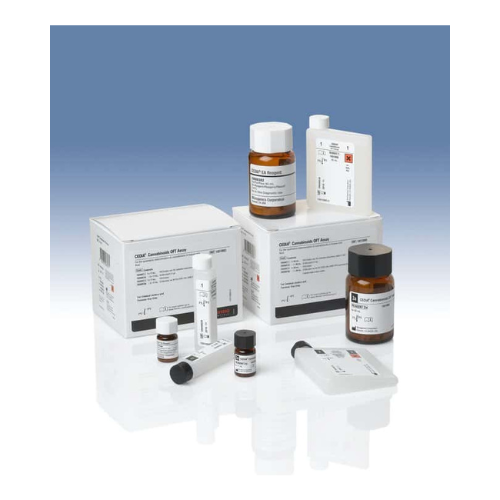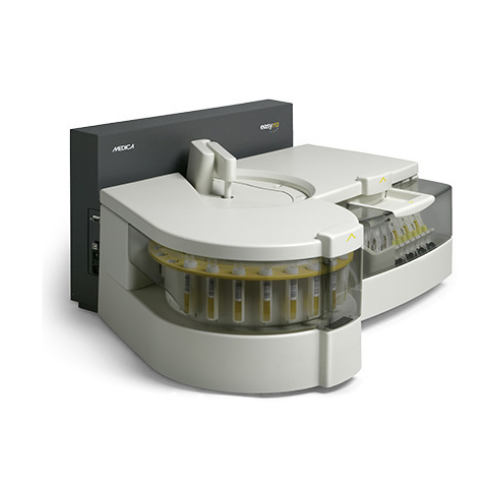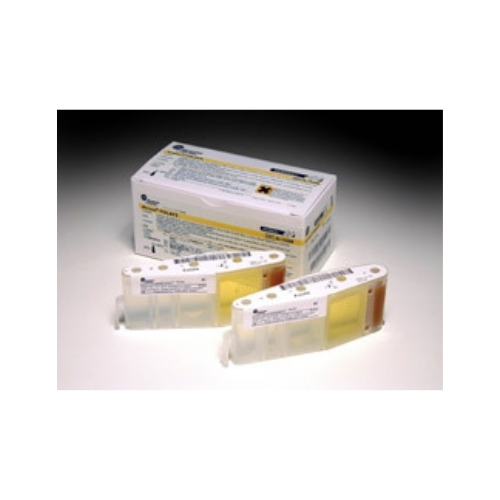For Business Use Only. Does Not Ship to Residential Addresses. For use inside an Analyzer, Sold Separately.
Thermo Kit Cocaine TSC
Thermo Kit Cocaine TSC
Product Code: 100086
Manufacturer: Thermo Scientific
Shipping Weight: 2.00lbs (0.91kg)
Specifications
Control Sets: MGC Multi-Drug Controls
Description: CEDIA Cocaine Drugs of Abuse Assays
Detectable Analytes: Benzoylecgonine
DoA Calibrators: CEDIA Multi-Drug Calibrators
Quantity: 3 x 17mL
Storage Requirements: 2° to 8°C
Intended Use
The CEDIATM Cocaine assay is an in-vitro diagnostic medical device intended for the qualitative and semiquantitative assay of cocaine metabolites in human urine.
Summary and Explanation of the Test
Cocaine (benzoylmethylecgonine), is derived from the plant species Erythroxylon coca, which is widely grown in South America.
Cocaine is rapidly metabolized, with less than 5% excreted unchanged in the urine. The two major metabolites, which result from enzymatic and nonenzymatic hydrolysis, are benzoylecgonine and ecgonine methyl ester. The metabolites may be detectable in urine for up to 3 weeks after long term, heavy use of cocaine.
The CEDIA Cocaine assay uses recombinant DNA technology (US Patent No. 4708929) to produce a unique homogeneous enzyme immunoassay system.11 This assay is based on the bacterial enzyme β-galactosidase, which has been genetically engineered into two inactive fragments. These fragments spontaneously reassociate to form fully active enzyme that, in the assay format, cleaves a substrate, generating a color change that can be measured spectrophotometrically.
In the assay, drug in the sample competes with drug conjugated to one inactive fragment of β-galactosidase for antibody binding site. If drug is present in the sample, it binds to antibody, leaving the inactive enzyme fragments free to form active enzyme. If drug is not present in the sample, antibody binds to drug conjugated on the inactive fragment, inhibiting the reassociation of inactive β-galactosidase fragments, and no active enzyme will be formed. The amount of active enzyme formed and resultant absorbance change are proportional to the amount of drug present in the sample.











